Description
The novel is the eternal husband of Fyodor Dostoevsky, the subject of which is: Pavel Vavlovich is a man who seems to have a good life and an obedient wife.
Powell loves this woman, Natalia, and is among the humiliated women in the world, but Natalia’s behavior convinces Powell, others, and even herself that she is an obedient and calm woman, but after Natalia’s death, the husband is confronted with notes that He breaks down all his calculations and thoughts and sees that you are a careless heart!
The issues raised in this book are real and occur frequently around us and are reflected in current literature, and are extremely meaningful and burdensome for future couples and “triangles” in terms of the consequences they entail.
After a few decades, there may be no trace of the old concept of love (two-way) and betrayal (three-way).
Dostoevsky had foreseen these changes. The complexity of human relationships excites Dostoevsky, and he predicts that the twentieth century will confront mankind with fundamental problems that it may even have to answer at the cost of his life. It brings us so close.
Dostoevsky wrote for us, not for our grandfathers; He wrote for our age, as we do it, not for the age of the Mycenaeans and Tolstoys.
He wrote for the era of the first electric lights and the period of world problems and its universal demonstrations.
“Always Husband” was written in the fall of 1869, a few months after “Stupid” and just before “The Afflicted.”
Between these two great works, although the first value of these two works was not known in Dostoevsky’s time, the story of “Always Husband” is of secondary importance. At that time, Dostoevsky had begun a period of intense creativity;
And in his mind he was working on the great story of the Karamazovs.
Although the design of this great book had to be set aside for a while for the sake of “always a husband” and for a time for the sake of “the afflicted”, its mental design developed little by little, and its ossification underwent profound changes and transformations.
The novel was written during the most sad period of Dostoevsky’s life. His illness (epilepsy) was getting worse every day; He was completely penniless and in debt up to his throat.
A strong desire to gamble ruled him. Sometimes he lived in Switzerland, sometimes in Saxony, sometimes in Italy, and he was so afraid of creditors that he did not dare return to Russia. The death of his first child and the fact that his wife was pregnant plunged him into immense despair.
The eternal Husband is the title of a book by the great Russian author Fyodor Dostoevsky, published in 1870. This novel was written in 1869, just a few months after the great and astonishing novel The Stupid.
This book does not contain Dostoevsky’s main ideas at all, so it does not matter much compared to Dostoevsky’s other books – such as Stupidity, Crime and Punishment, Demons and the Karamazov Brothers.
However, the reader, as always, will be impressed by the author’s pen.
As you read in the description on the back of the book, this book is primarily about Volchaninov. He is a 38- or 39-year-old man who feels suddenly old and still behaves boldly and tenderly despite his restraint and immorality.
But Volchaninov’s main problem is that he suffers from melancholy. If you have read Dostoevsky’s books, you are completely familiar with it.
Volchaninov’s memory is shattered, and his big, blue eyes have lost that constant electricity.
He sees pictures of the past in front of him and sees almost the memories of 10 or 15 years ago that he forgot in the smallest detail. Memories, some of which now seem like a crime.
Thus Volchaninov no longer had confidence in his dark, isolated and sick spirit. In addition, Volchaninov is involved in a trial that makes his situation worse.
This man, who two years ago was still so noisy, so cheerful, so filthy, who skillfully told delicious tales, now loved nothing more than to be completely alone.
He had willingly severed countless social ties.
In this critical situation, the character of “The eternal Husband” named Pavel Pavlovich Tserotsky enters. Pavel Pavlovich recently lost his wife and came to Volchaninov through a letter he found.
Pavel Pavlovich is not a brave man, so he only watches over Volchaninov from afar for a while. Surely you can see how this kind of secret behavior drives him crazy in Volchaninov’s melancholy and critical situation.
However, when the two talk, we find that Volchaninov has been in a relationship with Pavel Pavlovich’s wife in the distant past.
Pavel Pavlovich also finds out about this through a letter they exchanged at the end of their relationship, and now he has come to Volchaninov after the death of his wife.
But what is Pavel Pavlovich’s goal in finding Volchaninov? You are probably thinking of revenge, but the story is more complicated than that. You have to read the novel and closely monitor the characters in the book to understand their main purpose.
Probably the first thing that catches your eye about this book is its title. The book explains that there are women who “seem to have been born to be unfaithful,” and that unfaithfulness begins right after they get married.
Husband is the first love of this type of women, but this love is not enough. Natalia Vasiliona – the wife of Pavel Pavlovich Tserotsky – was one of these women. One who hates and condemns immorality, but is also immoral.
Now, in front of this type of women, there are men who are mentioned in the book entitled the eternal Husband. Pavel Pavlovich is one of these men.
Part of the text of the book The eternal Husband
Not only did Volchaninov believe that there were such women, but he also believed that there was a group of husbands who were opposite to them, whose only mission was to live with such women.
In other words, he thinks that the basic task of such men is to be “The eternal husband” or, to be more precise, to be only husband in all their lives, and nothing else.
“Such a man is born and raised to marry once and then be attached to and subordinate to his wife. Even though it has a special nature …
This is the main idea of the book. Describing a person who is “the eternal husband” versus a man who was his wife’s mistress. However, the complexity of the relationship between the two is readable in the novel.
While reading the book, the question arises in the mind of the reader: Do people have the ability to change? And basically what needs to happen for someone to leave their role and start a new life.
Volchaninov is clearly not a moral man, but when he feels old and melancholy he seems to have changed, but when he encounters the “the eternal husband” and sees that there is a certain attraction between them, he can not play a pleasurable and practically harmless role. Drop.
The role of Pavel Pavlovich is also very important. The translator of the book writes about this character in his introduction:
An instinctive and irresistible power pulls Pavel Pavlovich Tserotsky towards Volchaninov, towards Bagautov, towards his wife’s transgressors.
Not only because she is curious (Madame Bovary’s husband was also curious to know), but also because she loves them and because she wants them to respond to her interest.
The complexity of relationships in this book is striking above all else, but the fundamental question remains, can people get rid of their role? You need to read this book to get the answer to this question.
Keep in mind that Dostoevsky was a writer of crime, rewards, and stupidity when he wrote this novel, and that his genius is respectable.
So when the book, as always, was published, the critics expected more from her.
Of course, this book was written at a time when the author was facing many problems. Explicit attacks, bipolar disorder, mental stress, the death of the first child, and political events all prevented the author from creating a work as compelling as his name.
At the same time, the author develops the idea of writing for the Karamazov brothers. So the book The eternal Husband can only be considered a kind of liberation for Dostoevsky.
Something in his head that the writer had to write just to feel light.
Finally, the husband may not always have a strong position among Dostoevsky’s works and his philosophy, but he is still the work of a great writer and, like all his other works, is a book worthy of respect.
Dostoevsky’s name is enough to read this book.
Sentences from the book The eternal Husband
He was a man who had lived free for a long time, now he was not very young.
He was thirty-three or thirty years old, and this “aging,” as he put it, came “almost suddenly,” but he realized that this aging was not due to years.
But it can be said that the quality of these years had made him old and the cause of his misfortunes was more internal than external.
He did not trust his dark, isolated and sick soul.
Something puzzled his mind, like when a man searches for a forgotten word in his memory and searches with all his might.
It is true that he knows it well, he knows it, and he knows what it means, his mind wanders around it, but it is impossible to seek it in vain, because that word does not want to come to his mind at any cost!
I swallow my grief and get intoxicated by it.
Do not shake your head, do not judge me, I have judged myself and now I have condemned myself for a long time, for a long time!
You are familiar with this common habit of most women, as well as perhaps their lovers, who like to keep all the obsolete traces and signs of their love correspondence.
Isn’t it better to burn everyone? But no, the smallest piece of paper is sorted into small boxes on their desks; They are even graded and classified according to year and date.
Does this make them Tesla? I do not know? Maybe it will revive their pleasant memories.
He was moved by the tranquility of the graveyard, and as he looked up at the clear sky, he thought, “What a delicacy!” Pure faith penetrated his heart and filled his soul.
Big ideas emanate more from big hearts than from big minds.
This pain may lead to death! را Drink tea, head! To hell, if you burn! Life is worth more than beauty!
These people, who a minute ago still did not know whether they would kill or not, once grabbed a knife in their trembling hands and felt the first jump of warm blood on their fingers;
Not only will they kill you, but they will cut off your head with a single blow and throw you away.
About the author of the book The eternal Husband: Dostoevsky; Prominent author of Russian history
Fyodor Dostoyevsky Fyodor Dostoyevsky, a prominent Russian writer, was born in November 1821. The loss of his mother as a teenager did not deter him, and in 1838 he passed the entrance exams for the School of Military Engineering in St. Petersburg. He graduated from this college with the rank of officer and started his career in the engineering department of the Ministry of War in line with his field.
Dostoevsky left his life as a paternal heir until he was finished and needed to translate the works of other authors. He translated Balzac’s book Eugene Grande and began writing seriously.
Dostoevsky’s first book, The Poor, was published in 1846, and the author joined the group of protesting writers.
The novel “The Poor” has been translated into Persian with two different translations, “The Unfortunate” and “The Poor People”.
In the following years, Dostoevsky wrote the novels “Twin”, “Mr. Prokharchin” and “The Housewife”.
In April 1849, Fyodor was charged with plotting to overthrow the government and was sentenced to death.
But he was transferred to a prison in Siberia for hard work. While Dostoevsky was in prison, the Tsarist government staged a dramatic execution to show his greatness and seriousness, in which Dostoevsky and another group confronted fire brigades.
Dostoevsky experienced the bitter taste of death in this play.
While serving in the army, he fell in love with Maria Dimitriona and went with her to Moscow in the spring of 1859.
Fyodor’s return coincided with the beginning of his rewriting and work for Vermia, in which he lost his brother and his wife. He published the novel Crime and Punishment, and later wrote the book The Gambler in 26 Days, shortly written by Anna Grigoriona.
Fyodor Dostoevsky married “Anna” and they traveled to Europe. While he was in Europe he spent a lot of time gambling.
He wrote the books “the eternal Husband”, “The Revived”, “The Raw Young” and “The Karamazov Brothers” during these years.
The Karamazov Brothers are Fyodor Dostoevsky’s unparalleled masterpiece, his testament to the Russian people. The Karamazov Brothers were among the favorite books of such personalities as Albert Einstein, Sigmund Freud, Martin Heidegger, Ludwig Wittgenstein, and Pope Benedict XVI. Dostoevsky died of an illness in February 1881 and was buried in St. Petersburg.
What is the correct pronunciation of the name of Fyodor Dostoevsky?
A simple search reveals that the author’s name is spelled differently in different translations.
The reason for this difference is that a group of translators translated his books from English and another group from Russian into Persian, and this difference has arisen.
Fyodor, Fyodor Mikhailovich, Dostoevsky, Fyodor Dostoevsky Fyodor Dostoevsky are the letters that can be seen from him in Persian. “Fyodor Dostoevsky is the correct pronunciation of the author’s name,” said Abtin Golkar, an Iranian translator and researcher in Russian language and literature.
Other works by Dostoevsky:
Novel in nine letters
• Jealous husband
• Softhearted
• Polzonkov
• Honorable thief
• Christmas tree
• Bright nights
• Little Hero
• A dirty story
• the gambler
• Fool
• The corpses
• Crime and Punishment
• Memoirs of the House of the Dead
• The offended
• Karamazov brothers
• The dream of a ridiculous man
• Hostess
1- Introducing the book on YouTube
2- Introducing the book in Aparat


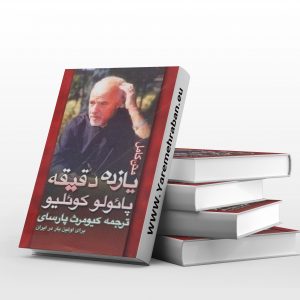




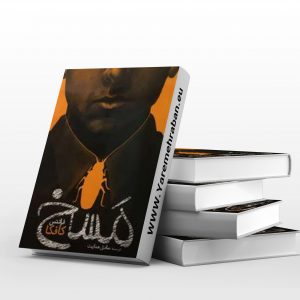
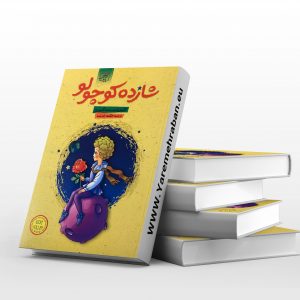

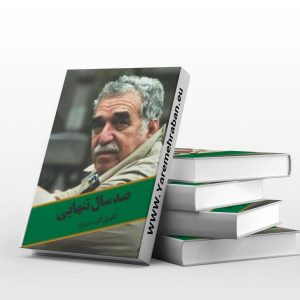

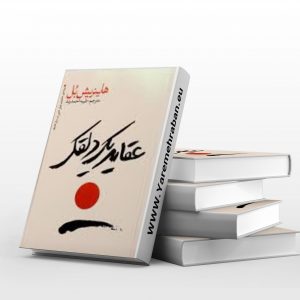

Reviews
There are no reviews yet.